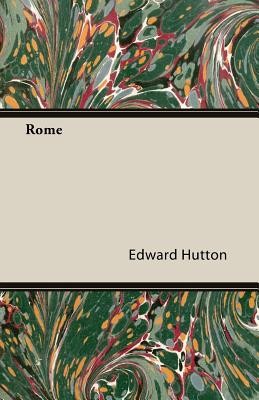
- We will send in 10–14 business days.
- Author: Edward Hutton
- Publisher: Howard Press
- ISBN-10: 1406767778
- ISBN-13: 9781406767773
- Format: 14 x 21.6 x 1.4 cm, minkšti viršeliai
- Language: English
- SAVE -10% with code: EXTRA
Reviews
Description
It is the times which change. When this book was first written there was a King in Italy and three mighty Empires dominated Europe. The Pope was a prisoner in the Vatican. Nothing of this remains. Italy is now a Republic. The Pope is again the Sovereign of an independent State the Vatican City. He is seen to wield a formidable power and to be in fact the spiritual head and front of the defence of civilisation. Very great changes, too, have befallen Rome. Rome has suffered a transformation beyond that of any other ancient city in Christendom. Whole quarters have been overthrown and excavated to reveal the ruins of the Imperial age: others, where an immemorial silence reigned, have been developed and built up. The time-honoured approach to St. Peter's has been swept away and replaced by a broad boulevard, and the majestic solitude of the Campagna has been invaded by the aerodrome and the modern suburb. In fact, Rome like the rest of the world has been engulfed in the Mass Age. Yet she seems to possess a mysterious continuity which no disaster, no vandalism, not even the lapse of time can interrupt, or change or diminish her divine character. 'Tempora mutantur nos et mutamur in illis'. It is the times which change and we too change with them. But our hearts ? In Rome as of old we may still find delight and wander through the centuries.
EXTRA 10 % discount with code: EXTRA
The promotion ends in 22d.05:10:55
The discount code is valid when purchasing from 10 €. Discounts do not stack.
- Author: Edward Hutton
- Publisher: Howard Press
- ISBN-10: 1406767778
- ISBN-13: 9781406767773
- Format: 14 x 21.6 x 1.4 cm, minkšti viršeliai
- Language: English English
It is the times which change. When this book was first written there was a King in Italy and three mighty Empires dominated Europe. The Pope was a prisoner in the Vatican. Nothing of this remains. Italy is now a Republic. The Pope is again the Sovereign of an independent State the Vatican City. He is seen to wield a formidable power and to be in fact the spiritual head and front of the defence of civilisation. Very great changes, too, have befallen Rome. Rome has suffered a transformation beyond that of any other ancient city in Christendom. Whole quarters have been overthrown and excavated to reveal the ruins of the Imperial age: others, where an immemorial silence reigned, have been developed and built up. The time-honoured approach to St. Peter's has been swept away and replaced by a broad boulevard, and the majestic solitude of the Campagna has been invaded by the aerodrome and the modern suburb. In fact, Rome like the rest of the world has been engulfed in the Mass Age. Yet she seems to possess a mysterious continuity which no disaster, no vandalism, not even the lapse of time can interrupt, or change or diminish her divine character. 'Tempora mutantur nos et mutamur in illis'. It is the times which change and we too change with them. But our hearts ? In Rome as of old we may still find delight and wander through the centuries.


Reviews